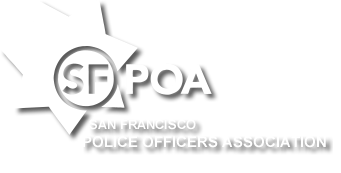As of January 1, California’s police officers are free to partake in the off-duty use of marijuana thanks to legislation amending the California Fair Employment and Housing Act. Imagine, law enforcement officers are now able to recreationally consume a federally recognized Schedule One controlled substance. Wow, what a concept!
Before anyone starts passing the bong around, let’s stop and think about this. Marijuana is a Schedule 1 drug for a reason. It significantly impacts judgment (during and after use), it’s nearly impossible to assess how impaired an individual is under the influence of marijuana, and it may have serious impacts for people in trauma-rich professions like first responders. So, what could go wrong?
Let’s start by busting one of the biggest myths: there is no link between violence and marijuana use/legalization. Yeah, right.
Violence & Mental Health Impacts
Medical research shows that marijuana use can cause “aggressive behavior, causes or exacerbates psychosis, and produces paranoia,” especially given the higher THC concentrations in today’s Mary Jane. Not to mention other substances that can be included. More worrisome, however, is “deterioration in health for individuals who have pre-existing mental health issues such as Post Traumatic Stress Disorder, social anxiety, and depression.”1 Given the impact of critical incidents on our officers’ well-being, this should be of utmost concern to our department’s leaders. Well, if they are paying attention.
Beyond the potential for violence in the individual, we were tragically reminded of the violence that surrounds the industry last month when Oakland Police Officer Tuan Le was murdered by a criminal gang burglarizing a marijuana grow operation. I am certain Officer Tuan Le’s loved ones, and his fellow Oakland Police officers would say otherwise about the violence that surrounds the marijuana industry.
Uncertain impairment
One of the biggest risks for recreational users, however, is that it’s nearly impossible to tell how impaired you are, how quickly you will become impaired, or the duration of impairment. What does that mean for police officers who decide to puff, puff, give? Getting behind the wheel of a car becomes Russian Roulette. How long should you wait until you drive? Unlike alcohol, that depends. How much THC did you ingest? Did you smoke, eat or drink it? Did you also have alcohol? It’s a mess. Check out this defense attorney’s website (http://tinyurl.com/573d72ym) in Colorado, where they’ve had legalized recreational marijuana use for over a decade. Good luck following this sober. They say 6 hours or more in Colorado, but last year we saw guidance of 4-4.5 hours in California. Want to roll the dice on which one is right?
Legislative Background
How did we arrive at this place? Our state legislature of course. AB 2188 and SB 700 amended California Government Code Sec. 12954, regarding marijuana use and employment. To paraphrase, it is unlawful for your employer to discriminate in the hiring, termination, or other terms of one’s employment for off-duty marijuana use. Unless you’re a construction worker. That’s right. Law enforcement officer toking? One hundred percent OK. Construction worker, you’re fired.
What kind of legislature entertains a law that could undermine an entity tasked with the safety of others, to show up to work even possibly in an altered mental state to carry out duties that can have life-altering consequences? Equally confusing in all of this is that the building and construction trades are exempted, but not law enforcement. Makes you wonder, what were they smoking?
Employment
Employers who conduct screening for marijuana can now only test for active THC and not metabolites, which means the test is to determine if you’re under the influence now, as opposed to identifying past use of marijuana. The San Francisco Sheriff’s Department issued a letter to all employees stating that they may possess or use marijuana while off-duty. The Internal Affairs Unit will not do investigations of employees for off-duty marijuana use. In their letter, it states that of course “no member shall report to work, be at work, or operate a vehicle owned or leased by the City and County of San Francisco while under the influence of any substance that can negatively affect them.” The Sheriff still expects employees to be able to perform all their duties unimpaired. You think?
What does that mean for SFPD? Good question. We’ve asked and have received zero responses. This is important and has real consequences! Something should have been ready before January 1st, so our members know where they stand. Nope. Silence. Why? Possibly they lack the courage to take a stand, provide clear direction to our officers, and make a plan to change the law if they think it’s harmful to public safety.
Let’s not kid ourselves. The first time an officer is involved in a critical incident who smoked weed the day prior on their day off will create global headlines. Would you trust the Department to stand by you then, even if you did everything right? The Police Commission? Our political leaders? No, they’ll call for investigations and to change the law immediately. And yes, the hypocrisy and irony will be completely lost on them.
The image of our profession.
A cloud of smoke coming from Cheech and Chong’s car, a couple of fellas sitting on the front porch doing nothing like in the movie Friday or Next Friday, or Friday after Next, your local law enforcement officer can pull a long drag, while listening to the Temptations’ Cloud 9, and create their own smoke-filled haze with every exhale on their day off. If that sentence seems completely ridiculous, you’re right. It is!
Is this the image of our profession we want promoted to the greater law enforcement community and the public?? Recreational drug use is the norm for what we do off-duty? There is a reason that law enforcement professionals are held to a higher standard. Our actions should be above reproach, of course we are not perfect but anything that could call into question our ability to make sane and rational decisions in the defense of others or ourselves, means we should try and forsake anything that compromises us.
What a person does on their off time is their business until it is spun in a way that negatively affects an entire profession. Not that anyone’s actions have affected an entire profession ever before. Right?

